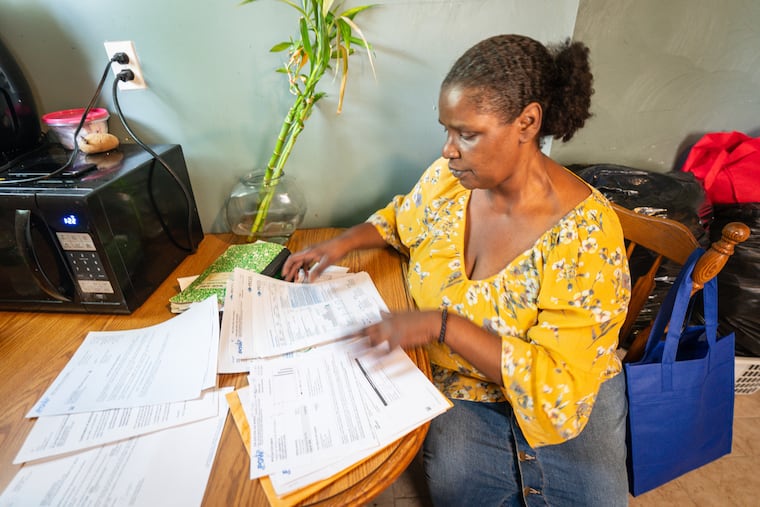How to spot door-to-door energy scams, which increase in the summer
U.S. Consumers lost about $8.8 million to scams in 2022. Here's how to avoid falling victim.

U.S. consumers lost about $8.8 million to scams in 2022, a 30% increase over the previous year, according to the Federal Trade Commission.
To avoid falling victim to a door-to-door energy scam, here is what experts at the Pennsylvania Public Utility Commission, the Pennsylvania Attorney General’s Office, and Community Legal Services of Philadelphia suggest.
Ask for ID
Door-to-door agents in Pennsylvania are required to undergo criminal background checks and wear an ID badge in public. Residents should ask for this ID if it is not shown to them.
A proper ID would be prominently displayed and include the supplier’s name, the agent’s full name, a photograph of the agent, and a customer-service phone number for the supplier.
When you open the door, agents are supposed to first tell you their name, the supplier’s name, and the reason for the visit.
Agents are required to tell potential consumers that they are not working for or affiliated with a local utility, or wear anything that indicates affiliation. If they don’t make that clear, or suggest otherwise, that’s a red flag.
Be on alert for pressure tactics
If a salesperson is urging you to buy now, be wary.
Remember that while you have the option to shop around for energy suppliers in Pennsylvania, you are not required to choose one.
Keep in mind, too, that if you ask an agent to leave your home, they are required to do so. You can also ask not to receive such solicitation from the supplier in the future.
If you make that request, the agent is supposed to notify the supplier, which should take your information out of their databases within two business days, according to the PUC.
Think it over
“Remember that door-to-door salespersons and callers are trying to sell a product,” Pennsylvania Consumer Advocate Patrick Cicero said. “Do not make decisions or commitments on the spot — do your homework before signing or consenting.”
After the sales agent leaves, you can do research on your own at papowerswitch.com. Read the fine print, paying attention to product terms, additional fees, and what happens when a contract or introductory period ends.
You may have to pay more than the advertised price per kilowatt hour. Suppliers sometimes tack on monthly charges, customer charges, and early cancellation fees.
Remember you don’t have to engage
You can just not answer the door.
That’s the tactic preferred by Robert Ballenger, an attorney in the energy unit at Community Legal Services of Philadelphia.
“Generally speaking, if someone knocks on my door and tries to sell me something, I’m not going to go for it,” he said. “If I make the decision to shop, I’m going to do it on my time and terms.”
Most of the door-to-door conversations start with the salespeople asking for your latest bill, he said, and he doesn’t like to share his billing information. And in his experience, consumers can end up paying more with a third-party supplier, sometimes after an introductory period ends.
“You have to have a tolerance for risk if you want to shop for these commodities,” he said, “and I think most residents should not, and have not, had that tolerance when it comes to vital, modern-day life essentials.”
Report potential scams
If a sales agent seems aggressive or deceptive, you can contact PUC’s Bureau of Consumer Services at 1-800-692-7380 to file an informal complaint. You can also contact the Office of the Attorney General at scams@attorneygeneral.gov or 1-800-441-2555.